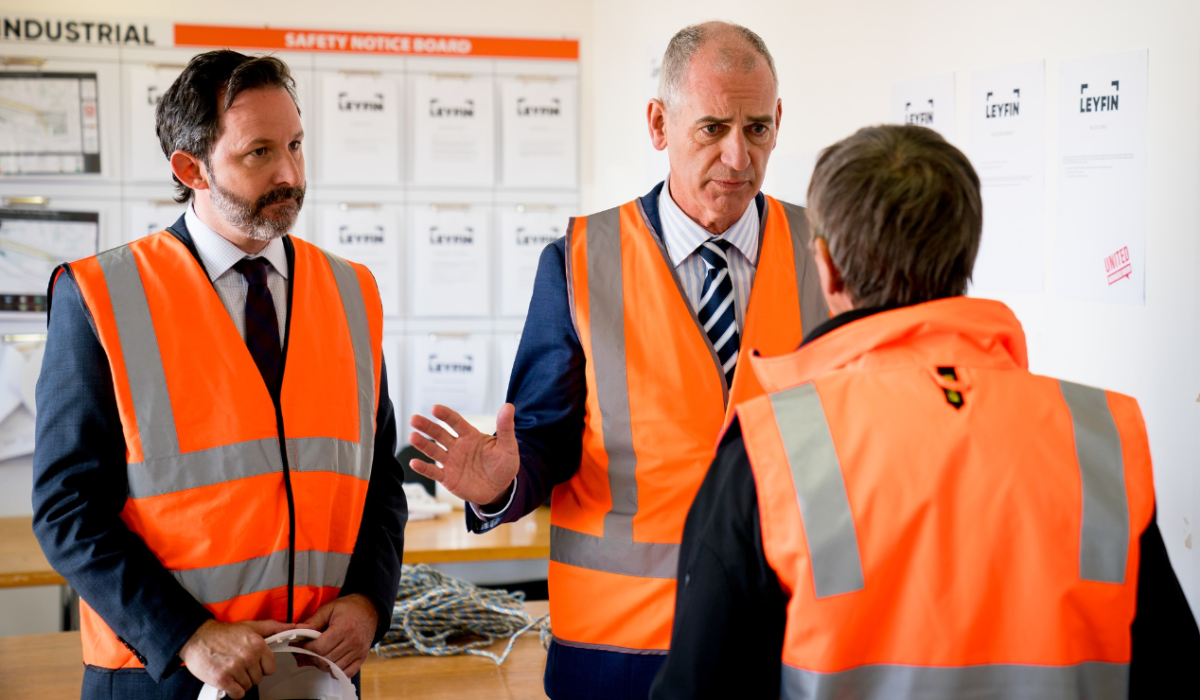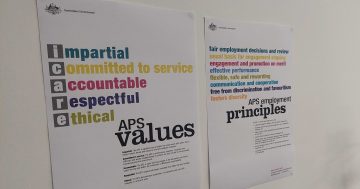
Reviewing the APS purpose statement every five years would be “Utopia-like”. Photo: Working Dog.
What does public service ‘stewardship’ mean, and why are we even doing this now?
Those are some of the pretty pertinent questions asked in a Senate inquiry into a bill that will kick off much-needed reforms to the Australian Public Service.
An inquiry report that landed late last week urged the Senate to pass a bill to amend the Public Service Act so it will likely sail through with the support of the Greens and not a lot of objection from the Coalition.
Aspirational public servants may be upset by one of its objectives – to crimp the APS senior executive service, which has expanded like topsy in the past 50 years.
But why is the government doing this now?
David Thodey’s review of the APS in 2019 was largely ignored by the previous government so the Albanese government decided, probably on APS advice, to get on with it.
But the bill was tabled just months after the PwC tax leak story, which sparked two parliamentary inquiries, and a month before the Robodebt Royal Commission’s findings came down.
That means it doesn’t respond to the problems stemming from the corrosive culture that developed under the previous government.
So why didn’t the government just wait for all the inquiries and the various government taskforces on Rododebt and APS integrity to report and make the changes in a single piece of legislation?
APS Commissioner Gordon de Brouwer says he’d rather take things slowly.
“If you changed everything in one fell swoop now, immediately, it would be very hard to absorb,” he told the inquiry.
We have a problem with “the digestibility within public administration”, he explained.
Responding to whatever allowed the shame of Robodebt and the (most likely) corrupt contracting practices would seem pretty urgent.
Are taxpayers expected to unquestioningly accept that it’s just too hard to turn the big ship of public administration around when it’s so clearly needed?
It’s Dr de Brouwer’s job to provide the ‘stewardship’ that this bill calls for and push hard for change to protect taxpayers from the debacles we’ve seen in recent years, I would have thought.
Which brings me to this contested concept.
The bill would insert ‘stewardship’ as an APS value even though there’s considerable confusion about whether it is a value or a ‘doing word’, which means making every public servant responsible for delivering it even more debatable.
As former APS commissioner Andrew Podger pointed out: “Stewardship is not a value that every APS employee is in a position to uphold, let alone being in breach of the code of conduct should they fail to do so.”
Others told the inquiry stewardship is “not a value, but rather a function” and the bill’s definition is “nonsensical”.
Most contentious, perhaps within the public service anyway, is the bill’s intention to stop the senior executive service mushrooming.
A startling statistic unearthed by the inquiry was that in the past 50 years, the number of APS deputy secretaries has increased sevenfold, and first assistant secretaries tripled while overall staff numbers declined by about 120,000.
That just doesn’t make sense.
The public service union is open about its support for devolving APS decision-making to lower-level staff to help cut the senior executive. It says it will use this part of the bill in its negotiations over a new APS enterprise bargaining process to call for a work standard review.
This seems only fair. When things go awry, blame shifts downwards, despite higher-ups making all the calls. It’s only fitting that everyone responsible for making decisions takes the credit, the blame and the pay.
Other parts of the bill create a real risk of time-wasting navel-gazing.
If it passes, we’ll get a new APS purpose statement, in case no one has read the Act, which spells this out clearly. Reviewing it every five years would be “Utopia-like”, Professor Podger rightly pointed out.
There’ll also be insights reports and regular capability reviews, probably good ideas to ensure the APS properly forecasts future challenges. And, indeed, we’re facing some very big ones like climate change, regional security, AI and so on that it must prepare the country for.
This bill is only the start of APS reform. Just what it will mean for your average public servant when it finally hits the ground is what really matters.
Like the Senate inquiry committee, I look forward to the debate on this bill, if I don’t fall asleep when it gets to the bit about ‘stewardship’.
Original Article published by Deb Nesbitt on Riotact.










